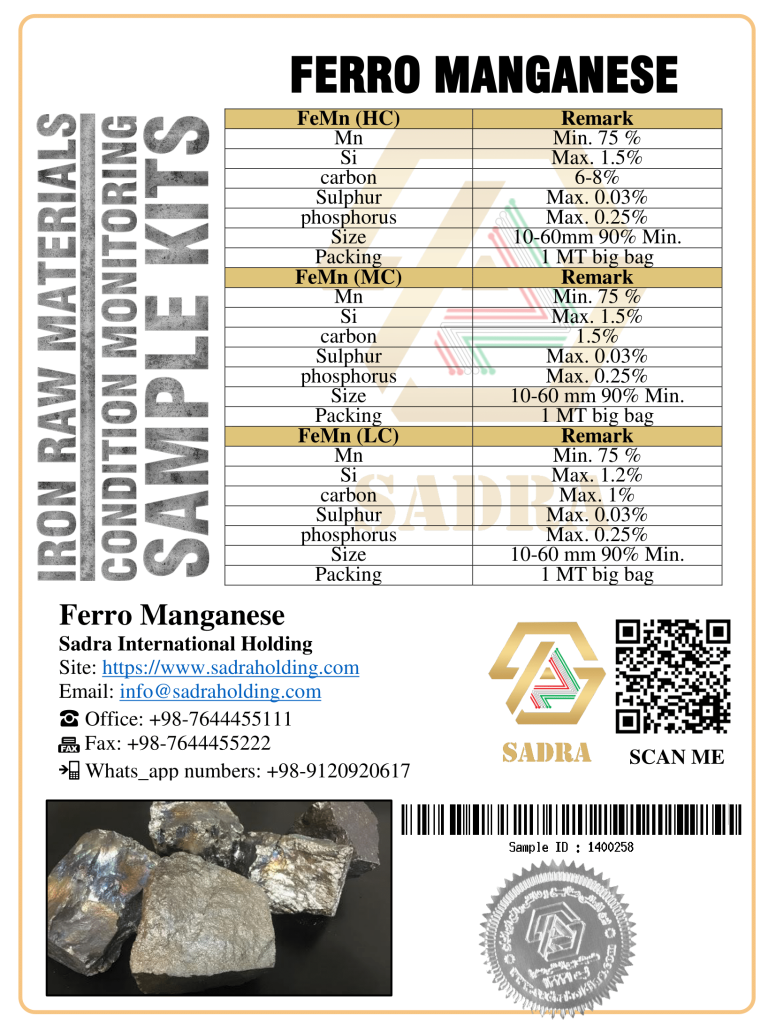Manganese is used as a deoxygenating element. This element produces manganese sulfur (Mns) with sulfur and thereby reduces the unfavorable effect of iron sulfur and the brittleness and brittleness resulting from it. This element is particularly important in steel and cast iron. By adding a certain amount of ferromanganese in the alloy, the risk of breaking the parts can be reduced and the critical cooling rate can be greatly reduced, thus increasing the hardness of the product. Also, by adding some manganese, the strength of the product increases. In steels with more than 12% manganese and with a high carbon percentage, it is austenitic, because manganese significantly expands the austenitic range, steels that are produced by adding some ferromanganese, and as a result, impact stress is applied to The outer surface, the hardness of their outer layer increases greatly due to cold work, while the inner part remains soft, and for this reason, they have high wear resistance against the impact of impact forces, and steels with more than 18% manganese due to They are highly deformed and cannot be magnetized, and the alloys that are produced are special and are used as soft steels in the cold state at very low temperatures, and the coefficient of thermal expansion of steels is increased by adding some manganese, while the ability Their thermal and electrical conductivity decreases.

Robert Hadfield succeeded in discovering the advantages of steels with high manganese content, which are today known as Hadfield steels, which are mostly used for special purposes such as iron rails and ore crushing equipment.
In general, manganese is one of the five main elements of iron alloys, for every 3% of manganese, the tensile strength of steel increases by 10 kg/mm, and if the amount of manganese is between 3 and 8%, the tensile strength increases with a smaller ratio, which is 8% Mn increases the tensile strength in reverse, and the changes related to the yield stress are similar to the tensile strength, and also Mn increases the depth of hardness in cast irons.
In cases where they want to increase mechanical strength and hardness in the production of alloy steels, in addition to increasing tensile strength, high-carbon ferromanganese is used.



